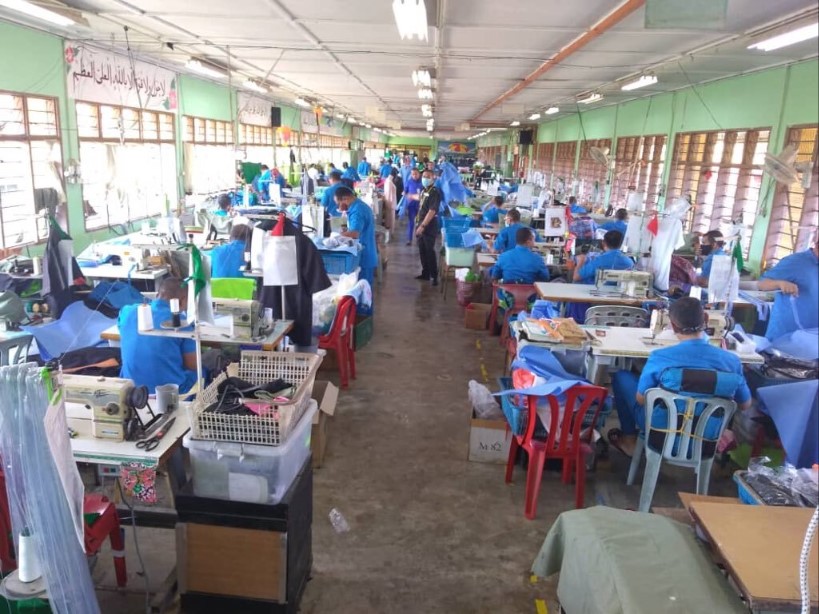KUALA LUMPUR, June 4 — An expert revealed the chaotic distribution of protective gear and ventilators when Covid-19 first broke out, even as health authorities insisted that personal protective equipment (PPE) stocks were adequate.
Prof Dr Adeeba Kamarulzaman — dean of the Faculty of Medicine at Universiti Malaya and an infectious diseases specialist — told a forum hosted by CSO Platform for Reform Tuesday that in consideration of room for improvement from Malaysia’s response toward the Covid-19 pandemic, a systematic approach to medical equipment distribution would have been helpful.
She pointed out that in the early stages of the country’s response towards the Covid-19 outbreak that hit Malaysia last January, the scrambling for PPE with the lack of systematic distribution of these equipment left many public health care workers (HCW) fending for themselves in the quest of obtaining adequate protective gear.
“There has to be a — this is one area where I’d think to look back — where a central doc file of necessary equipment, whether it’s PPE, or ventilators, or what have you, a central distribution system, because at one time it was almost like ‘every man for himself’.
“We certainly could’ve done better in terms of preparedness with PPE for instance. That was at the very beginning where (there was) scrambling for PPEs,” she said.
The Ministry of Health (MOH) back on April 8 said that there was no shortage of PPE and the challenge was in its distribution. However, MOH revealed five days later that PPE stock was limited and was only enough for up to two weeks at that time.
Health director-general Dr Noor Hisham Abdullah assured the public that PPE stock levels were monitored through an online database system to ensure that PPE stocks were sustainable. He also lamented that some HCW were using the full set of PPE although not needed.
In response to the online database system by MOH that was supposed to coordinate PPE for the entire country, Dr Timothy Cheng, an orthopaedic surgery masters trainee in a local university hospital, wrote to CodeBlue and voiced his opinion that there should not be any compromise to safety while trying to save and limit the usage of PPE, and questioned the efficiency of the online database system in light of MOH’s change of statement in a mere five days.
An online survey conducted by Malaysian doctors, including Dr Cheng, which polled 788 HCW from April 13 to 19, found that the majority of doctors and other HCW at MOH hospitals and clinics, public university hospitals, and private medical facilities experienced PPE shortage.
Later that month, Dr Cheng launched a website to match protective gear requests from Covid-19 frontliners to public contributions, a system meant to complement MOH’s purported deficiency in the management of PPE.
Automated Contact Tracing System Useful For All Infectious Diseases
In terms of the country’s current practice with manual recording and contact tracing for Covid-19, Dr Adeeba believes that an automated system would enhance the productivity of such practices.
“If you want to consider room for improvement, then this is where it is, If you speak to people on the ground, the manual way in which we recorded the cases and the actual manual way in which we did the contact tracing are all areas for improvement,” Dr Adeeba said, adding that Covid-19 will not be the last pandemic.
Dr Adeeba also pointed out that the manual process is “very labour intensive”, and emphasised that steps need to be taken to automate these processes after the coronavirus crisis in the country has settled down.
“I think these are the areas where we need to seriously, post-Covid things settle down, things to look at in terms of preparedness — how can that be improved. Of course with contact tracing, the concern around data privacy, et cetera, I think that in good time we can all come up with a good solution,” she told the forum.
In addition to improved productivity for Covid-19 response with automated contact tracing and recording methods, Dr Adeeba also mentioned that such technology could be useful for other infectious diseases such as tuberculosis (TB) and dengue.
“Contact tracing can be used for other diseases like TB and Dengue, which are going to be around for a long time to come,” she said.
She further told the forum that the people and government “must never be complacent”, noting that the viruses and pathogens are in many ways “much cleverer than us”, and some other developed countries are fighting a difficult battle against the Covid-19.
“They have brought the Americans to their knees, for example. So, we must never be complacent. There are lots and lots of areas for improvement, I mentioned the manage(ment) of contact tracing being one of them.
“We need to have a system in place for active surveillance for these kinds of infections — a rapid alert system,” she said.
In Dr Addeba’s opinion, better collaboration between different sectors related to health care could also strengthen the country’s health care system in order to better prepare for future pandemic events.
“I think greater involvement of the private sector would be nice, and even my colleagues in academia, greater involvement of other teaching hospitals or other labs in the early stage, a truly kind of a collaborative response in the early stages would, I think, have been good as well,” she said.
“A while before the labs got going, initially there were delays in the results because it was only concentrated only in a few labs. Those are some areas that I can think of off the top of my head.
“Some things we need to strengthen and even put in place, for something like this, with a push of a button, it’s ‘go’.”








